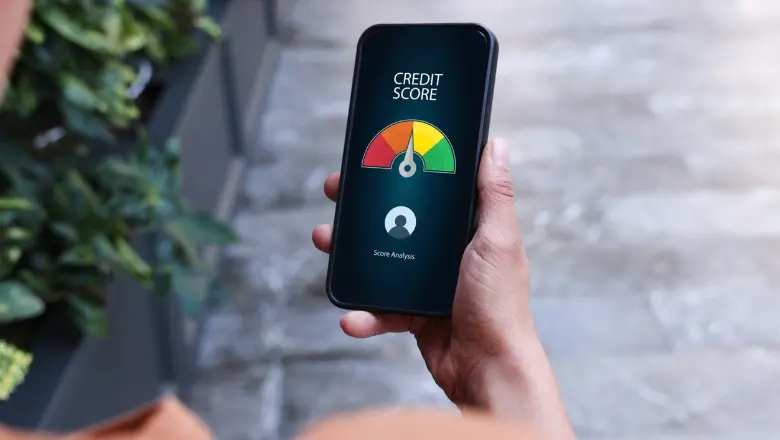HELOC Requirements: How to Get a HELOC
A home equity line of credit (HELOC) is a revolving credit line secured by your home. HELOCs give you access to cash that you can use to make improvements or repairs, consolidate debts, or cover large expenses.1
Lenders set HELOC requirements to determine who qualifies, but you’ll typically need a minimum amount of equity, good credit, and a steady income. Read on to learn how to get a HELOC and what you can expect during the application process.
Key Points
• To qualify for a HELOC, one must have good credit, a low debt-to-income ratio, and sufficient home equity, with an LTV ratio not exceeding 85%.
• The HELOC application process involves selecting a lender, submitting an application, providing required documents, and completing underwriting and a home appraisal.
• When applying for a HELOC, it is important to check your credit score, gather financial documents, ensure adequate home equity, compare lenders, and plan your budget.
• For a smoother HELOC approval, reduce debt, take good care of credit, and have all necessary documents ready before applying.
• Common HELOC mistakes include overborrowing, not exploring other options, and failing to compare lender offers.
What Is a HELOC?
A home equity line of credit is an open-ended line of credit that allows you to borrow against your home equity. Equity is the difference between what you owe on your home and its fair market value.
HELOCs have an initial draw period, during which you can access your credit line. You can borrow what you need when you need it, up to a preset credit limit. You can even make payments to pay down your balance and then borrow up to the credit line again. The draw period may last five to 15 years, and your lender might only require you to make interest payments toward the principal you’ve borrowed during that time. Once the draw period ends, you’ll repay the principal amount, plus interest.
Interest rates on a HELOC are typically variable, meaning they can go up or down over time following movements in a benchmark rate. That means your payment can increase or decrease. Some lenders offer fixed-rate HELOCs, though that’s less common.1 Incidentally, a HELOC isn’t the only type of home equity loan. There’s also a standard home equity loan, in which a lender loans you a lump sum that you begin repaying immediately.
How the HELOC Application Process Works
The HELOC approval process is fairly straightforward. You’ll need to:
• Choose a lender and apply for a HELOC
• Provide the lender with required supporting documents
• Complete underwriting
Underwriting is a process in which a lender verifies certain information about you and your home to assess your creditworthiness and decide whether to approve you for a HELOC.
During underwriting, the lender will check your credit, review your income and debt, and assess your home’s value. That last step is particularly important as you’ll need to have sufficient equity in the home to qualify for a HELOC.
How long does it take to get a HELOC? It varies, but a typical time frame for approval is two to six weeks from the date you submit your application.
HELOC Requirements
Knowing how to qualify for a HELOC can help you gauge whether you’re a good candidate and help you narrow down which lender to work with. HELOC requirements vary by lender but generally include:
• Good credit
• A low debt-to-income (DTI) ratio
• Sufficient home equity
A “good” credit score on the FICO® scale is a score of 670 or better, and as a general rule, lenders like a score in the upper 600s. FICO credit scores are used by 90% of top lenders for credit decisions.
Your DTI ratio measures how much of your gross income goes to debt repayment each month. Lenders look at your DTI ratio to determine how much money you have available each month to make HELOC payments. Home equity lenders generally look for a DTI below 50%, but the lower, the better.
Perhaps most importantly, lenders want to know how much equity you have in your home. This is where your loan-to-value (LTV) ratio comes into play. This ratio measures how much you want to finance versus your home’s appraised value. Typically, lenders look for an LTV of no more than 85%, meaning you have at least 15% equity in the home.
HELOC Approval Tips
There’s no special secret to how to get a HELOC; you’ll just need to find the right lender to work with and meet their approval requirements. With that being said, here are a few tips that could smooth the path to HELOC approval.
• Reduce debt. Paying down some of your existing debt could improve your DTI ratio, potentially making you more attractive to lenders.
• Check your credit. Checking your credit reports and scores is an opportunity to learn what lenders will see and address any errors or mistakes that could be hurting your score. If you find an error, you can dispute it with the credit bureaus to have it removed or corrected.
• Calculate your equity and LTV. If you don’t know these numbers, take a minute to figure them out. Here’s how to calculate home equity: subtract what you owe on your primary mortgage from your estimated home value. To find your LTV, divide your mortgage balance by your home’s estimated value.
You could also get preapproved for an equity loan. HELOC preapproval means that a lender has done a cursory check of your credit and finances to conditionally approve you.
Preapproval for a HELOC can give you an idea of what loan terms you’re likely to qualify for. Keep in mind that you’ll still need to submit a full application and complete underwriting to get a HELOC.
Common HELOC Mistakes to Avoid
You want to know how to get a HELOC, but it’s just as important to understand what could hurt your application. Here are a few HELOC mistakes to avoid as you navigate the approval process.
• Don’t overborrow. HELOCs only charge interest on the amount of your credit line you use. However, that’s no reason to get a larger line of credit than you need. If you only need $50,000 for a home improvement project, for instance, but get a $100,000 HELOC because a lender is willing to approve you for that amount, you could end up with more debt to repay than you’d planned on.
• Don’t assume a HELOC is your only option. There are so many ways to use a HELOC, but you may find that a different type of loan makes more sense. Weigh the benefits of a HELOC vs. a home equity loan or a personal line of credit vs. a HELOC to decide which borrowing option to pursue.
• Don’t apply without comparing options. With so many HELOC lenders to choose from, it makes sense to do some comparison shopping. Study HELOC rates and compare lenders’ draw periods, repayment terms, fees, and approval requirements to see which lender is the best fit for your needs.
• Don’t forget to plan your budget. Missing payments on a HELOC could put your home at risk, since it secures the loan. Calculating how much you can afford to pay in the draw period and repayment period can help you avoid a scenario where you’re in danger of losing your home to foreclosure because your HELOC payments are too steep.
• Don’t miss out on tax breaks. Here’s a tip about HELOCs and taxes: if you use the money to pay for home improvements, the interest is tax-deductible. If you’re getting a HELOC to handle major or minor home upgrades, keep your receipts so you can write the interest off at tax time. Right now, this benefit is good through the 2025 tax year; consult a tax advisor for the latest updates.
How to Apply for a HELOC
Ready to apply for a home equity line of credit? It’s not an overwhelming process if you know what you’ll need to do and what you can expect from the lender. Here’s how to apply for a HELOC, step by step.
1. Check Your Home Equity and Credit Score
If you haven’t calculated your equity or checked your credit scores yet, now’s the time to do that.
You can use a home equity calculator and a loan-to-value calculator to find your equity amount and LTV. You can pull copies of your credit reports for free through AnnualCreditReport.com. You can also log in to your credit card accounts to see if free FICO score access is a card benefit. SoFi offers free access to your VantageScore, which is an alternative to FICO.
Note that checking your credit reports or scores yourself won’t impact you in any way. However, hard pulls (which happen when a lender checks your credit) will show up on your credit reports and take points away from your scores.9
2. Gather Required Documents
You’ll need some documentation to complete your HELOC application. The good news is that it’s more or less the same as what you needed to apply for the loan you used to buy the home.
A lender may ask for copies of your:
• Driver’s license or government-issued ID
• Bank account statements
• Investment account statements
• W-2s
• Tax returns
• Profit and loss statement and cash flow statement if you’re self-employed
Gathering these documents beforehand can save you time and potentially speed up your HELOC approval.
3. Submit your HELOC Application
If you’ve chosen a lender and you’ve got your documents, you’re ready to apply for a HELOC. Many lenders allow you to do this online. You’ll just need to complete all required sections, then upload the requested documents.
Review your application carefully before you hit submit to check for errors and look for any questions that you accidentally left blank. If everything looks good, you can move ahead with submitting your application.
4. Underwriting and Home Appraisal Process
Once the lender receives your application, they’ll move forward with underwriting. The lender will check your credit and schedule an appraisal, which you’ll be expected to pay for up front.
Lenders may schedule an in-person appraisal, a drive-by appraisal, or a desktop appraisal. The in-person appraisal requires a professional appraiser to come to the home and look over the property to determine a valuation. A drive-by appraisal doesn’t require the appraiser to enter the home, while a desktop appraisal is done remotely using home valuation software.
What if the appraisal comes in too low? That could keep you from getting approved for a HELOC. You can ask the lender to reconsider or schedule a new appraisal with a different appraiser. You’ll have to pay any additional appraisal fees.
5. HELOC Approval and Closing Process
If all goes well and you’re approved for a HELOC, closing is the final step. You’ll sign all of the HELOC documents and pay closing costs, unless the lender is allowing you to roll them into the loan.
Once you’ve closed on your HELOC, the lender will make your line of credit available to you. That can take a few business days. Once your HELOC account is set up, you may be able to access your credit line using a special credit card or debit card, or paper checks. If you got your HELOC through a local bank, you could also visit a branch to make withdrawals.
The Takeaway
Doing some research can help you decide if getting a HELOC makes sense for you, and once you’re set on a HELOC, a little more research can help you determine which lender will offer the best rate and terms. HELOC approval is ultimately up to the lender, but you can make yourself more creditworthy by paying down debt and taking good care of your credit profile before you apply.
SoFi now partners with Spring EQ to offer flexible HELOCs. Our HELOC options allow you to access up to 90% of your home’s value, or $500,000, at competitively lower rates. And the application process is quick and convenient.
FAQ
How long does it take to get a HELOC?
The exact timing varies, but generally, it can take between two and six weeks to get approved for a HELOC. Factors that affect the speed of HELOC approval can include your choice of lender, your financial situation, and the results of your home appraisal.
Can I get a HELOC with bad credit?
It’s possible to find lenders who will offer HELOCs for bad credit, though there are some caveats to know. A lower credit score can add more obstacles to approval overall. If you are approved, you’ll likely pay a higher interest rate or more fees to make up for the higher degree of risk the lender is taking on.
Does a HELOC require an appraisal?
Lenders generally require an appraisal for a HELOC because they need to know how much your home is worth. Without an appraisal, they can’t determine how much equity you have and whether you have a sufficient LTV to qualify for a HELOC.
How hard is it to get a HELOC?
How hard — or easy — it is to get a HELOC depends on your financial situation. For example, getting a HELOC may be a breeze if you’ve got near-perfect credit, make a six-figure income, and are sitting on a pile of equity. If everything isn’t universally rosy, you can still qualify. It’s up to each individual lender to decide whom to approve, so if you don’t qualify the first time you apply, you may still be able to borrow.
What are the requirements for a HELOC?
Getting a HELOC is similar to getting a mortgage to buy a home. You’ll need to show a lender that you have sufficient income to repay a HELOC and that you have a history of responsible credit use, which means paying back what you borrow on time. You may also need to undergo a home appraisal to determine the value of your property, and thus your equity amount.
What disqualifies you for a HELOC?
Lack of a credit history, lack of income, lack of adequate equity, or overwhelming debt could all be barriers to getting approved for a HELOC.
Photo credit: iStock/shapecharge
SoFi Loan Products
SoFi loans are originated by SoFi Bank, N.A., NMLS #696891 (Member FDIC). For additional product-specific legal and licensing information, see SoFi.com/legal. Equal Housing Lender.
SoFi Mortgages
Terms, conditions, and state restrictions apply. Not all products are available in all states. See SoFi.com/eligibility-criteria for more information.
*SoFi requires Private Mortgage Insurance (PMI) for conforming home loans with a loan-to-value (LTV) ratio greater than 80%. As little as 3% down payments are for qualifying first-time homebuyers only. 5% minimum applies to other borrowers. Other loan types may require different fees or insurance (e.g., VA funding fee, FHA Mortgage Insurance Premiums, etc.). Loan requirements may vary depending on your down payment amount, and minimum down payment varies by loan type.
Financial Tips & Strategies: The tips provided on this website are of a general nature and do not take into account your specific objectives, financial situation, and needs. You should always consider their appropriateness given your own circumstances.
Third-Party Brand Mentions: No brands, products, or companies mentioned are affiliated with SoFi, nor do they endorse or sponsor this article. Third-party trademarks referenced herein are property of their respective owners.
Tax Information: This article provides general background information only and is not intended to serve as legal or tax advice or as a substitute for legal counsel. You should consult your own attorney and/or tax advisor if you have a question requiring legal or tax advice.
²SoFi Bank, N.A. NMLS #696891 (Member FDIC), offers loans directly or we may assist you in obtaining a loan from SpringEQ, a state licensed lender, NMLS #1464945.
All loan terms, fees, and rates may vary based upon your individual financial and personal circumstances and state.You should consider and discuss with your loan officer whether a Cash Out Refinance, Home Equity Loan or a Home Equity Line of Credit is appropriate. Please note that the SoFi member discount does not apply to Home Equity Loans or Lines of Credit not originated by SoFi Bank. Terms and conditions will apply. Before you apply, please note that not all products are offered in all states, and all loans are subject to eligibility restrictions and limitations, including requirements related to loan applicant’s credit, income, property, and a minimum loan amount. Lowest rates are reserved for the most creditworthy borrowers. Products, rates, benefits, terms, and conditions are subject to change without notice. Learn more at SoFi.com/eligibility-criteria. Information current as of 06/27/24.In the event SoFi serves as broker to Spring EQ for your loan, SoFi will be paid a fee.
Checking Your Rates: To check the rates and terms you may qualify for, SoFi conducts a soft credit pull that will not affect your credit score. However, if you choose a product and continue your application, we will request your full credit report from one or more consumer reporting agencies, which is considered a hard credit pull and may affect your credit.
Disclaimer: Many factors affect your credit scores and the interest rates you may receive. SoFi is not a Credit Repair Organization as defined under federal or state law, including the Credit Repair Organizations Act. SoFi does not provide “credit repair” services or advice or assistance regarding “rebuilding” or “improving” your credit record, credit history, or credit rating. For details, see the FTC’s website .
Non affiliation: SoFi isn’t affiliated with any of the companies highlighted in this article.
SOHL-Q225-038
Read more



